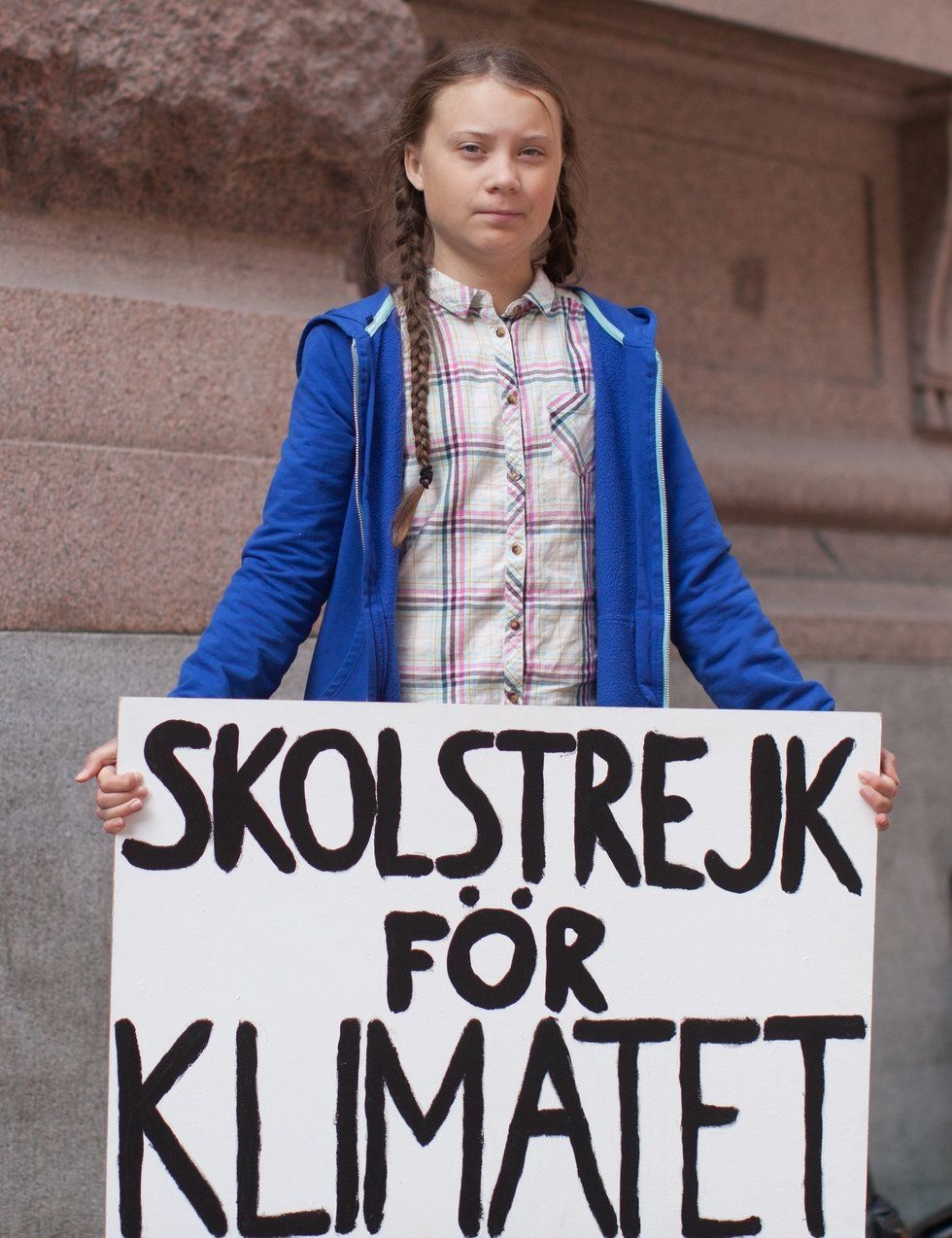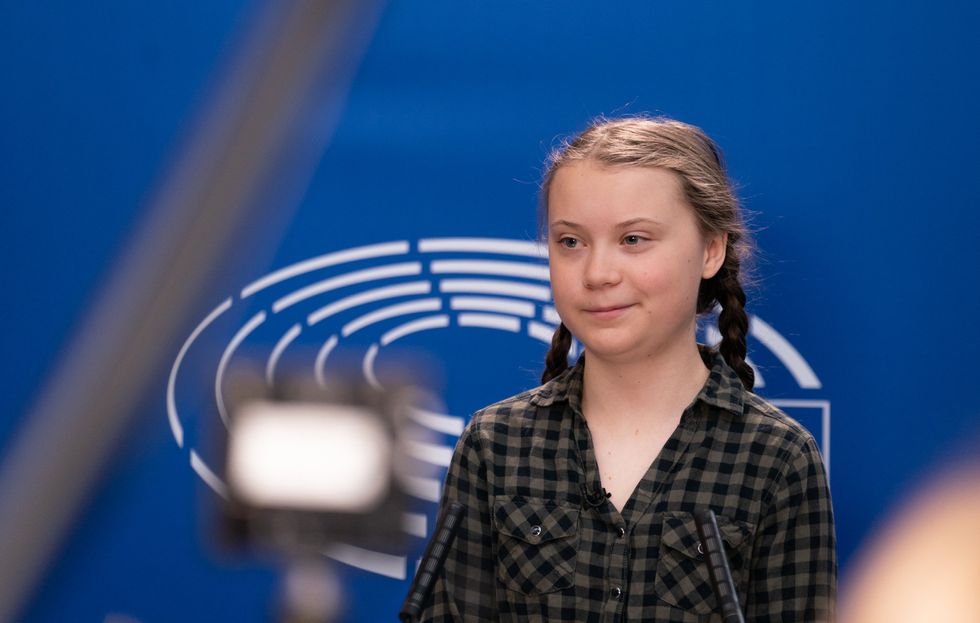Greta Thunberg, a Swedish teen, overcame Asperger's and mutism, to find her voice. Now fifteen, she is making the news.

Thunberg has risen to fame from her activism in climate change. She began by orchestrating small school protests that spread across a continent. But on September 23rd, she stood on stage in front of the most powerful people on earth, at the United Nations Climate Action Summit.
While critics have called her "a mentally ill Swedish child" (Washington Post) and a leftist puppet, she has been widely celebrated as a symbol of hope.
Emboldened by her fear that she and the rest of her generation's future are being taken away, she made a passionate and emotional address.
Thunberg cited studies, assigned blame to the politicians, and deflected her critics. She added that "this is all wrong. I shouldn't be up here. I should be back in school, on the other side of the ocean," (NPR) something disparagers have brought up countless times.
Throughout her powerful speech, she repeatedly asked "how dare you" to the audience. She questioned the idea that the younger generations are often cited as able to save our future. "You all come to us young people for hope," she claimed.
Apart from the moving rhetoric presented by Thunberg, she made several points worth raising concern. She is concerned mostly about global emissions, among other contributing factors. She cites 30 years' worth of studies, that were supposed to incite change before it would be irreversible.
She claims that negligence from those largely responsible is to blame. "You say you hear us and that you understand the urgency. But no matter how sad and angry I am, I do not want to believe that. Because if you really understood the situation and still kept on failing to act, then you would be evil. And that I refuse to believe."
This isn't her first time speaking at the U.N. She made waves back in December.
Undoubtedly, her words made those in power uncomfortable. Whether that lack of comfort results in change or critique is yet to be seen.
She is among many to so boldly speak about climate change, but she is doing it in new ways. Her age and demeanor certainly aid in the effect of her words, but she lacks the hesitance others may face when in the face of such political power.
Yet, for years, and generations now, climate change has been a topic of controversy. It seems that there is one thing different now. More reports than ever are suggesting that we are at a tipping point in history, and Greta Thunberg is a product of the pressure climate is putting on the youth. The youth being those who will face the most consequences, miss the biggest opportunities, and watch the worst things to come if our efforts fail. Thunberg should not be seen as a savior, rather as an inspiration that anyone and everyone can make use of their voice.
Now that she is a household name and has earned critique from our own president, one would hope her impact would make a lasting impression. Certainly, the egotistical nature of politics would raise a brow at a middle-class child calling out the world's leaders.

















